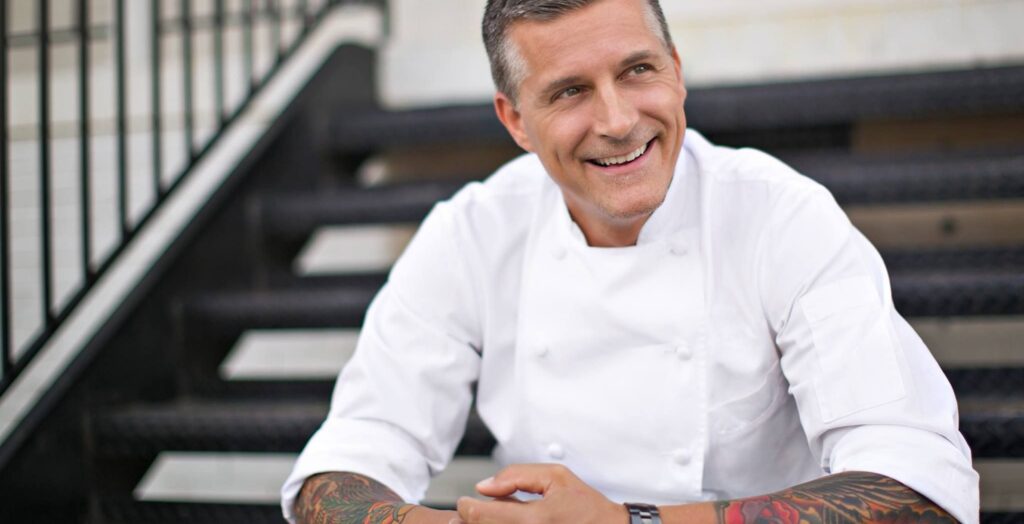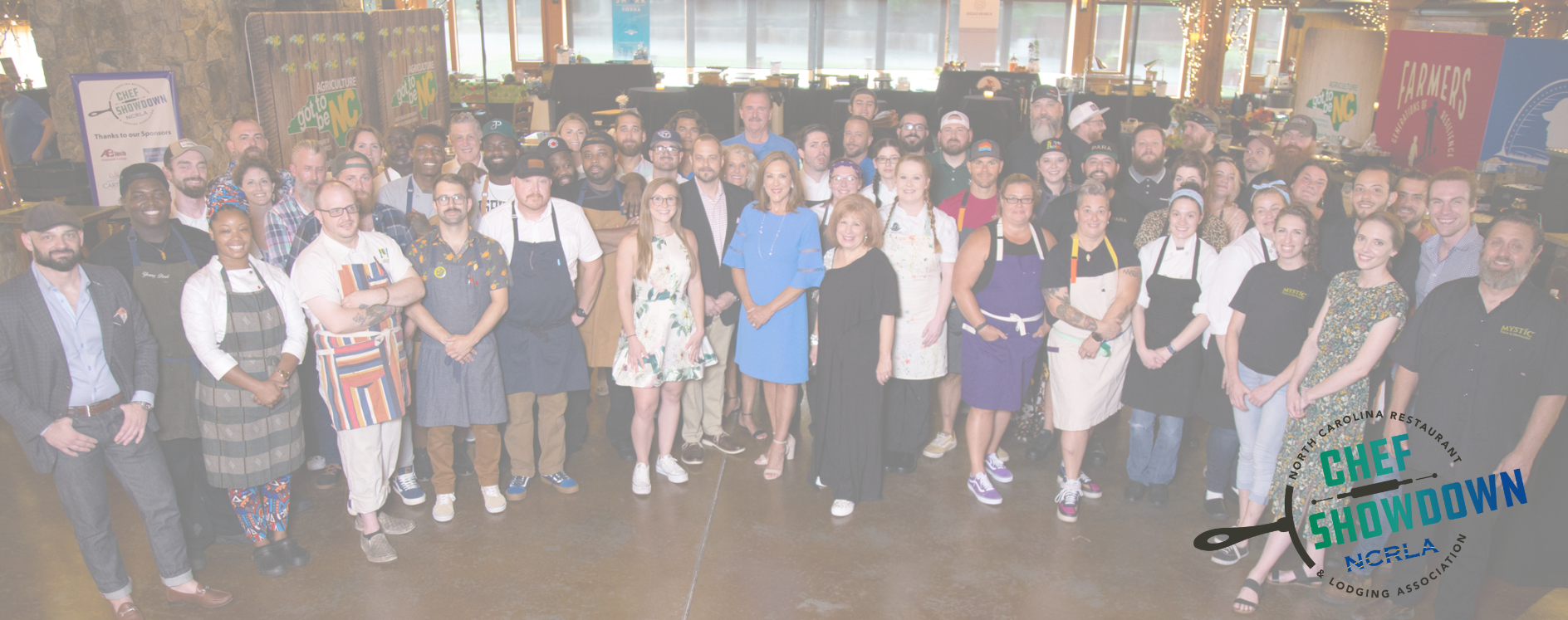Chef Scott Crawford Prioritizes Mental and Physical Health
When it comes to attracting and retaining talent, this multi-business owner tries to establish a working environment that is sustainable in every sense of the word.

Scott Crawford’s culinary pursuits have taken him to fine dining restaurants and hotels in San Francisco and to luxury hotels and restaurants in Charleston, South Carolina, and Raleigh. Along the way, he learned how to build, manage, and lead teams. Today, he’s the chef/owner of three Raleigh-based restaurants: Crawford & Son, Jolie, and Crawford Cookshop.
He’s expanding Crawford Hospitality to include three new projects opening later this year and in 2024: Brodeto (a celebration of the Adriatic Coast), Crawford Brothers Steakhouse (a modern American steakhouse), and Crawford Genuine (in the Raleigh-Durham International Airport).
When it comes to attracting and retaining talent, Crawford tries to establish a healthy and sustainable working environment.
“Our goal as a company is to elevate the level of professionalism, to be aware of how our team members’ health and mental health is, and be a more sustainable company and more sustainable industry,” he says. “We think that if we continue to create a professional, safe, healthy work environment, people will come back to the industry if we lost them during the pandemic, and we’ll attract new people into the industry.”
Crawford says some things in the industry won’t change, but he looks for what he can improve.
“I don’t necessarily think that we can make the industry easier. I think you have to like hard work, and you have to like that feeling of adrenaline for a busy service,” he says. “I think we’re going to attract new people because we develop our values in this company based on sustainability (and) being conscious of health. Mental and physical health are very important in our company.”
“Our goal as a company is to elevate the level of professionalism, to be aware of how our team members’ health and mental health is, and be a more sustainable company.”
Five ways Crawford supports his staff’s mental and physical health
1. Time off
His restaurants close two days a week, as well as on Christmas Day and for an entire week after New Year’s Eve in January.
“The thing that I didn’t like about the industry when I was coming up is that we would work six and seven days,” he says. “Working six and seven days is not sustainable. You’re eventually going to burn out. You’re not getting the proper amount of rest, and you’re not able to do the things in your life that you need to do.”
2. Food, not drinks
Staff is served a meal during their shift instead of drinks at the end of it.
“We don’t reward them at the end of a shift with alcohol. They can choose to do that outside of work if they want, but we would rather reward them with a nourishing family meal,” he says.
3. Chiropractor services
A local chiropractor performs adjustments for staff on site. He and an assistant provide full adjustments in the restaurant and share advice on wellness.
“In return, we allow him to come into the restaurant and dine and enjoy. We take care of him and his staff in the way that we know how, and he takes care of us in the way that he knows how,” Crawford says. “That’s been amazing, just being able to be adjusted and aligned because physically this [work] can be pretty brutal. You’re on your feet, no matter how you look at it, for hours at a time.”
4. Human resources
His company uses an outside HR group to provide guidance on numerous issues, as well as to ensure compliance, establish a staff structure, and help create a handbook and training guidelines that align with their vision.
5. Recognition
Employees—both front and back of house—are regularly recognized on social media for their anniversaries, accomplishments, and collaborations.
Crawford says he pays close attention to his dishwashers and porters, which are often underappreciated roles.
“We try to make sure that they are happy. We just celebrated one year with one of our porters and really made a big deal about it because historically that was a position that could turn over every three or four months. It’s somewhat difficult to find the right person for the job, but that position might be the most difficult,” he says.
No experience required
Here are three things Crawford looks for in an applicant:
1: A great attitude
2. Professionalism
3. A desire to learn
Crawford looks for candidates who conduct themselves professionally and respectfully. Resumes are welcome but not needed.
“We’re really just looking for people with a great attitude and a willingness to learn and be a part of a team. Everything else is teachable,” he says.
Additionally, he says that the hospitality industry not only gives people a chance, but even a second chance. “I started at the bottom. I worked my way to where I am right now. I struggled with addiction; I burned out; and then I came back and did it a different way,” he says. “I just want people to know that they can do it. They can make their dreams come true. If they love this industry, they can own a restaurant, they can do anything within this industry. And I just love that about this industry. It’s important for people to know that it’s all achievable.”





